I love to camp. I love to camp almost as much as I love to fish. Being outside, far from city lights and city traffic, is soul-building. Dropping the jacks on my little camper overlooking a stretch of fishy water and spending a week away from computer screens, cell phone signals and the damn lawn mower is how I recharge.
And I don’t do campgrounds. Where I live, I’m fortunate — there are dozens upon dozens of public-land campgrounds on the national forests and BLM lands near my home. And a lot of folks use those campgrounds, which is a really good thing. But, if I have a choice, I almost always choose to go the “dispersed” route — a wide spot off a Forest Service road, or a hidden grotto connected to the road via a subtle two-track trail … that’s where I camp. It’s private. It’s rustic. It’s a great way to find solitude and, truth be told, better fishing.
In all honesty, I like to go where people aren’t.
But dispersed camping is becoming more and more popular. With that popularity, of course, comes the refuse that often remains after humans leave the woods — garbage, damage to the land and even piles of excrement. In Arizona’s iconic Oak Creek Canyon on the Coconino National Forest near Sedona, “campers” have trashed dispersed camping sites, carving their initials into tree trunks and crafting graffiti on rocks. On parts of the nearby Prescott National Forest, camping was banned for two years starting last summer after officials could no longer keep up with the trash and damage inflicted on public lands by dispersed campers.
Of course, the damage isn’t restricted to Arizona — public lands open to dispersed camping all over the West are being degraded as I write this. The ongoing coronavirus pandemic has people searching for recreation away from crowds, and they’re finding things to do — good, wholesome outdoor activities — on lands that belong to all Americans. Unfortunately, they aren’t doing it right. And, as the saying goes, a few bad apples can spoil the entire barrel.
In time, if this misuse continues, forest managers will have no choice but to ban dispersed camping, close spur roads and restrict access to the public lands that give the West much of its appeal. Certainly, the pandemic can be blamed for an influx of inexperienced campers in need of some simple education when it comes to camping etiquette, but, honestly, the damage to public lands is nothing new.
For years, I’ve protected a couple of a “secret spots,” choosing to share them with a select few folks (mostly folks who don’t fish, mind you), under the assumption that special places are only special because they’re still largely intact and it’s easy to escape the crowds that might be gathered at the official campgrounds. When I visited one of my favorite locations a couple weeks ago, I discovered that what was once the “end of the road” was no longer. Instead, enthusiastic ORV riders had pioneered a circular “track” that bordered my once-sublime campsite — now, dirt bikers and ATV riders churn up dust and make camping on the bluff overlooking one my favorite public lands streams a lot less enjoyable. To make matters worse, presumably the same ORV folks have decided the short walk to stream isn’t short enough — they’ve created a completely new two-track trail across the meadow below my favorite campsite that goes directly to a popular swimming hole.
Just this past week, I ventured north, deep into the woods of Idaho’s panhandle, in search of west slope cutthroat trout and bull trout. I hauled my camper north through Montana, climbed a sketchy pass and dropped down into the headwaters of the St. Joe River. It’s stunningly beautiful country replete with tall firs and cedars that have come back in dense groves after the Great Burn in the early 1900s. The river itself is a sight to behold — cold, clear water cruising over scoured river rocks and through deep, green pools where trout eagerly await flies.
I was easily 100 miles from any notable population center, and I figured I would have my pick of any number of dispersed camping sites along the upper river. But when I arrived on a Tuesday afternoon, I realized that times are different. Every wide spot in the road was occupied, and I eventually settled for an out-of-the-way spot in a stock camp.
I’m not bemoaning the use of our public lands — it’s actually heartening to see people taking advantage of this uniquely American birthright. But as I drove out on Saturday morning, I was taken aback by the leavings of a few “campers” who decided that packing out what they packed in just wasn’t something they wanted to do. In the middle of the week, I was visited by a Panhandle National Forest employee who asked me if I knew anything about a stock picket being sawed down in a nearby campsite — I hadn’t noticed the damage until she pointed it out to me, but this bit of vandalism took some effort, a chainsaw and a general disregard for the next folks to come camping who might like to tie their horses up overnight.
This is the kind of behavior that will reduce our dispersed camping opportunities. If folks can’t be bothered to clean up after themselves and refrain from scrawling their initials in aspen trees, spray-painting a rock face, driving their ATVs across an untracked meadow or constructing some silly cairn made from displaced river rocks, they likely shouldn’t be camping in the first place. More damage will lead to more closures by land-management agencies, and rightly so.
I get that we’re in the midst of a global pandemic, and we’re seeing both the best and worst of humanity as our country deals with its most concerning cultural crisis since the 1960s. I also understand that “getting away from it all” is important for our emotional well-being — this is something I’ve grasped for decades. But if we can’t do it right, and keep our public lands clean and ready for the next folks who are trying to accomplish some responsible recreation during the time of COVID-19, perhaps we shouldn’t be doing it at all.
And if we’re not careful, those charged with managing our public lands will be forced to make some tough choices for us when it comes to dispersed camping. Let’s get our acts together and take care of the places we all love. The damage we inflict today cuts into our opportunities tomorrow.






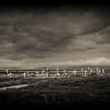
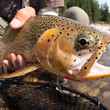
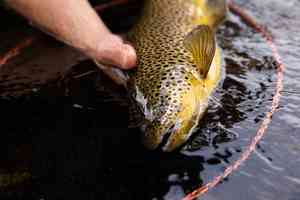


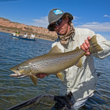
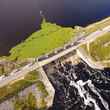
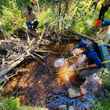
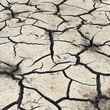









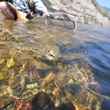

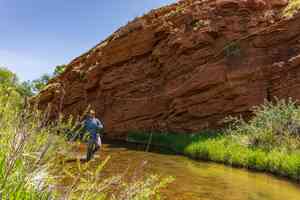
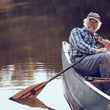
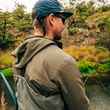

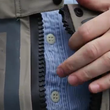
Comments
Anonymous replied on Permalink
The destructive results you are seeing is due to a generation that was not taught the meaning of respect you see it across the nation in cities in schools and in our every aspect of government. I do camping a lot forest service and state parks but I know what you are talking about. Maybe the way to change things just like they use smokey the bear " only you can prevent forest fires" we need to use similar ways to make the public aware of the damage their causing and if you see something say something
Who cares replied on Permalink
Glad you noticed but you are WAY late to the party. I bought land in 2018 and had no idea how prescient it was. If you think this problem is bad, talk to outdoor guodwa and realize this has been building for years and will get worse. Now, your being conditioned to wear masks INDOORS! America is divided and falling....
Teresa Buettner replied on Permalink
Ugh! Finally a place to vent! It is happening here in the Black Hills of South Dakota as well! I too understand the need and desire to get away but how folks are doing it has been hard to watch. I live where my back property line is adjacent to Forest Service boundary and enjoy that access daily, hiking 1000's of miles. This year big fifth wheelers, huge RV's are back there all over..... OK good for them getting out.... It's the damage to the Meadows, trails without regard and the excrement left behind that my dog finds... EW, WHO does that anyway! There seems be an overall lack of regard for the environment and other campers. So sad.
Red Mullet replied on Permalink
The woke culture is now invading public land use. Public land use to be manage the natural resources for all. It is now " we do not deserve this planet" to quote a commentor. Sure there are going to be low lifes that trash any environment they exist in. How about doing something about it, rather than banning all in order to protect the planet. Pick up the trash you see and pack it out. Not that hard and your actions are actually remedying the situation.
John McMillan replied on Permalink
There needs to be tent only camping. Camper trailers bring more trash. It also encourages a lot of people who will not otherwise go camping to get out there and bring a house with them
Tired of driving 2 hours down remote dirt roads and getting to a spot to find a generator running and someone living there.
Kaylene M Bowen replied on Permalink
I live in Washington and everything here is already locked up, due to these problems. At the same time even our highways and parking lots are filled with trash. Unfortunately, there is no shortage of shitheads who have no respect, shame, or common courtesy. People are the reason I am no longer a people person.
William Paris replied on Permalink
Cockroaches of the universe... we won't stop until we've laid waste to every square inch of this planet, which at last look, was the only Big Blue Marble found in the universe... imagine what life will be like when we hit 20 or 30 billion people!
Mugwort replied on Permalink
I blame the internet for blowing these places up. There have always been slobs there's just more of them now and the same amount of forest.
Mike Scott replied on Permalink
As an AONB Manager in Wales, it's interesting to see that you are struggling with the same problems we are facing.
The solutions are the same as they always are - funding for the managing agencies, education and enforcement and volunteers.
Regardless of whatever is in the news, you live in an incredible, beautiful, vast country - enjoy it and help protect it!
Anonymous replied on Permalink
While you might think stopping dispersed camping would be a solution, it would be a violation of our 4th amendment rights. So that’s not gonna happen. Instead of getting angry try just a friendly education to the offenders. We will have to police ourselves.
Nancy Barton replied on Permalink
I was sorry to hear that some untrained people did not follow the "leave no trace" procedures while camping. Apparently some people do not know how to dig "cat holes."
This is a very serious problem because of hookworms in the Deep South. I have personally seen hookworms and those evil things bite in campgrounds or run across a dispersed site. A lot of YouTube films are teaching people good camping practices though. I learned them when I was a Girl Scout. One gorgeous place to dispersed camp was closed due to trash, sewage, and exhibitionistic nudism (guys sleepwalking near the neighboring Girl Scout troop campsite). This was on The Gulf National Seashore's Perdido Key. The Adults reading this know that Florida is a right to privacy state, but what goes in your tent needs to stay in your tent. It is one of the few places where you could actually camp on the beach! Yes! We used to watch the Leonid Meteor shower overnight the last week the Gulf is warm enough to swim in untill the Spring.
Bob Norris replied on Permalink
Unfortunately, this is an article I have been expecting to see for some years now. My experiences with dispersed camping for over 40 years have been exactly the same as the author's. There have always been people who abuse the blessings of our public lands, but the problem is so much worse now. As others have noted, it's a combination of too many people piling into popular camping areas, and an increasing number of them who have no ethics at all and leave trash everywhere. The public lands around many Western cities have literally become.dumping grounds, not just from camping, but illegal dumping of household and commercial waste.
The public land agencies are vastly underfunded to deal with the sheer numbers of.people who bring all of society's problems with them. Years ago, I spoke.with a BLM ranger and he frankly admitted the problem. "We get maybe 20 reports of illegal activity in our district every week - many of them felonies - and have the staff to investigate perhaps two of them".
I don't even try to find dispersed camping within an hour's drive of any major cities anymore, nor near any lake or stream within 2 to 3 hours Same with the most popular national parks. Fortunately I live in a state where there are srill lots of opportunities to find remote camping if you're willing to go the distance.
I hate to say this, but I don't see an easy way out. The "Wild West" mentality toward our public lands is going to have to evolve toward a more managed model, or they will be trampled, stripped, and burned into relics of what they once were. This has already happened to a number of my favorite dispersed camping areas from 20 years ago that I no longer visit.
That means user fees for all visitors, and better law enforcement, and, yes, closure of overused areas for periods of time. These practices are already in use by USFS and other ages in districts with high visitation. I expect they will be adopted nationwide.
Anonymous replied on Permalink
I just camped in the Idaho backcountry near where you describe and everywhere back into the trees was toilet paper lying on the ground. Couldn't even bother to bury it in a pristine creek area. Embarrassing and disrespectful and it will get these areas closed. Great article.
Anonymous replied on Permalink
I, too, haven't been able to camp at my favorite spot nor visit my favorite lake this summer. I've noticed the overcrowding and the lack of packing out. Also, garage along side the road as you drive back in to the city. I just do not understand how some do not know the common sense of cleaning up after themselves! It really makes me upset!
Nate replied on Permalink
Sadly, this is not new. It is worse than the past.
I recall collecting waste fishing line from Isle Royale decades ago. I discovered some beautiful locations on Lake Michigan with a few obvious reused campsites and it became a favorite.
When the nearby campgrounds were overloaded, people headed to the dispersed areas. The level of trash and damage I saw was heartbreaking. That was 5 years ago.
I can only imagine how much worse it is this year.
ChrisP replied on Permalink
WOW. Sad to read this article and see this type of pig lazy disrespectful behavior is going on across America. I dispersed camped with my brothers family at the beginning of this summer and had the same experience. It seems people flock to disperse camp to do the following: Save money, kind of. They use this Freebie camping, but the savings then goes straight to Walmart camping equipment, Carl budding lunch meat, mufflerless Craigslist dirt bikes and quads, and pallet loads of Coors light. The carefree entitled attitude of scroungy guys in there 20's riding an imported no-name quad at midnight of course with proper safety gear. Which consists of flannel pajama bottoms, Hardy shirt purchased of a clearance rack, and no helmet.
The all time showcase topper of the weekend happened sunday morning. Watching this burnt out blonde, walk of shame gal get out of her new car payment white 4runner and pitch a garbage bag o' trash down the doody hole of the Sani-can. Bravo.
Hopefully these outdoor recreational losers don't shut down these type of area for people that like to actually enjoy the outdoor.
Maybe we can set of specific areas these mouth breathers can do their camping. Let them wade around in there own feces and trash. If you see one of these super camper champs out there, recommend the dump or local transfer station. You're going to love it!
Chris replied on Permalink
I believe it how you were raised.. My parents Instilled in us kids that we should leave the campsite cleaner than we when we arrived... we would pick up cans and cigarette butts and pack it out.
I have raised my kids that way as well and we NEVER leave a campsite dirty or a hot fire pit. We take more water with us than we use and it goes into the fire ring. Whether or not if it has been used.
Education is the key to keeping these and all campsites open and available to everyone.
Brandon replied on Permalink
New Zealand allowed for years a form of freedom camping that we enjoyed - until due to lack of stewardship and responsibility of campers, as you note in us public lands, ended the practice. It’s a shame, but without restrictions, we stand to loose more then we gain.
Jon Shannon replied on Permalink
Yup. Same thing happened to me this summer. A place I have visited and fished for 40 years along a remote forest service road, 76 miles from the nearest pavement, was over run by disrespectful and thoughtless ORV riders. In a time of covid I expected the normally quiet and empty meadow by the river to be even more deserted. Boy was I wrong. There were 5 or 6 families with trailers, campers, tents and 30 4-wheelers crowded into the spot. Teenagers blaring loud music, adults shooting guns, babies crawling in the mud. They left a mountain of trash and burned everything in site including building 2 new fire rings where one had stood alone unassuming for 30 years.
I too love to go where people are not. The fishing is secondary. I am hoping this is just a one off event due to covid-19, but I am worried that the ORV craze may forever destroy many of the remote areas where I camped in Montana and Idaho for decades. Like the author, I am glad to see people out recreating on our public lands. In my part of the west a group of politicians have been trying to sell off this land for 20 years. So far the value of "public" land has prevailed, but we need more people to speak up and protect the best thing about being an american and living in the west.
For the past 15 years the US Forest Service has gone out of its way to encourage ORV recreation. They have built trails for that purpose and modified many of the forest plans to allow off road vehicles where they were never allowed before. There needs to be limit on where these noisy things can go. I don't want to be elitist - there is a place for that kind of recreation, but if the current trend is the picture of the future, those seeking solitude in the rmote areas of our public lands are doomed.
SLR replied on Permalink
In the long run, when looking at cleanup costs, it may become advantageous to develop a permit system for dispersed camping areas - with specific campsites noted (similar to how some campgrounds have you pick your site first, then come back to the office to get your permit with the site number on it). Then someone can inspect the site after you vacate and if you left damage or a mess, you get fined. Cutting new ATV trails or leaving more severe damage could include jail time or being required to clean dumpsites in addition to fines. Money seems to be the only thing that matters to some people. But this may pay for the employees it would take to manage the area.
Joe Gaffney replied on Permalink
I backpack in the wilderness areas of Calif. Wilderness backpackers are more circumspect about following the rule they drill into our heads: Leave No Trace.
Anonymous replied on Permalink
This breaks my heart. Living in Colorado in 70's and 80's I spent many a night camping and trout fishing in quiet solitude with no neighbors in sight. Although I went camping mostly with my significant other, as a young woman I had been known to take a few vacation days tied to a weekend and set out on my own. In those days I felt safe enough and confident that I could manage any critters bothering my tent at night with my "racoons baseball bat." Sadly, those days are gone. And I have sociological insights into the disrespectful trash left by modern day "campers" but it would be too provactive to leave that in this forum. As an original hippie and Earth Day advocate, I always assumed that our motto of "carry in; pack out" would be a permanent cultural shift and our respect for Mother Earth would lead for generations forward. So sad...
Eric Stephenson replied on Permalink
I agree. Americans have become extremely lazy. So much trash everywhere, even in the backcountry. Police up your trash people!
annie's mom replied on Permalink
The worst I've seen is here in WA, human s#@! right on the banks of two vital headwater streams. I guess I should feel better that they also left the toilet paper...but it was obscene. Really people. And now with the wildfires, you can just bet that some of them were started by the same dispersed campers I witness start a mongo bonfire despite the burn ban and hundreds of signs saying no campfires....I agree, stop dispersed camping.
Eric Baumann replied on Permalink
100% agree with this sentiment. My girlfriend and I spent the last 2 years traveling the west, camping in NF dispersed areas 90% of the time, BLM 9%, paid campgrounds 1%. Dispersed NF camping is the best thing going in this country and too many take it for granted. We found a lot of beautiful unspoiled spots but just as many trashed, usually when we got within 1-2hrs of any major city. I think it's really just a sign of the times and a complete lack of understanding/respect for the land and what these areas represent. I hate to say it but that lack of respect has become as "American" as anything these days. Everyone thinks there is someone coming in behind them to clean up, just like their moms did for them for far too long...and I guess the fact is yea, there is, ME...and any other true "patriot" who knows the natural beauty contained within our borders is the greatest thing this country has going for it.
Carie replied on Permalink
Loved this article - thank you for posting!
My family saw it in action just this weekend.
We live in CO and we love dispersed RVing & camping. We came to a spot near Rampart Reservoir that had a few other spots occupied and then a few spots that looked occupied - one with a broken tent and trash galore- yet there was no one for the 2 days we were there. We do a “service project” everyday with our kids wherever we go- to put on gloves and go around to pick up trash to clean up God’s country - my kids love this act of trying to make an impact of making something better than when we got there. At this particular dispersed spot our family of 4 filled 4 grocery bags and an entire tub (yep- a tub was left behind that we took and filled with trash). My kids were excited to help clean up; but they also couldn’t understand how other people could be so disrespectful and thoughtless in how they treated nature. (My kids are 4 & 7!). It was hard to give them an answer besides - some people are just thoughtless and maybe don’t understand the damage they are causing. We just emphasized setting the example :)
Your article is right on- bringing awareness and educating all of us to step up and each do our part; which sometimes means going the extra mile. Thank you!
Walter Goddard replied on Permalink
I disagree with you Chris... It is Trump who made the public lands act possible and it was his doing to start 1 trillion trees too...
The same activists that espouse your Trump rhetoric, are the same groups that trash the wilderness.. It starts with Personal Responsibility, understanding that all things have a time and a season... knowing that season, the reason to harvest, and how to do it right.. on a sustainable yield... is stewardship in action.
He has a higher perspective on multiple use of natural resources, as a responsible steward.. than you can obviously phantom!
It shows what your agenda is..and it doesn’t seem like it’s truly to protect the environment, but to legislate total control of all natural resources.. and loss of Liberty!
Anonymous replied on Permalink
I've been camper in dispersed areas all my life. Over time I've noticed some very disturbing trends. One is humans inability to pack out everything they pack in and the shear number of campers. I've found this especially evident on holidays. So now I try to avoid camp
Second is the ATV crowd. The backroad areas once a 2 track are now becoming hillside bank turns. Extended trails once just a road. It's extremely disturbing to see the land turned up by those only wanting motorized fun.
So now I backpack as often as possible. This puts me in areas car and RV campers can't go and backpackers are generally more respectful of the land.
ClimberT8 replied on Permalink
What exactly is so "dispersed" about camping in a camper? Stay in a parking lot and leave the dispersed wilderness to people who can get there on foot.
Charlie Morton replied on Permalink
We live with monkeys. Increasingly degenerate. The idea of freedom is great, but paired with irresponsible Neanderthals, the outcome is chaos. The next generation won't get to enjoy this. But they won't miss it because they never experienced it. Everything happens in cycles. The land will be restored. People will once again enjoy the best this country has to offer. But it won't be in our lifetimes. Or the lifetimes of anyone currently alive.
Anonymous replied on Permalink
Thanks for this. I've camped all over the West. Many places are fine. Others are not. The absolute worst in my experience are places target shooters pick out. They tend to become completely trashed - debris of all sort all over the place. Stunningly ugly. They just don't seem to care.
Anonymous replied on Permalink
The sad truth! And because of this, like you said they will close it down to all of us.. I am so sick of the good, respectful people who treat camping on these lands as an honor, who then get punished for the ones who Do Not Care.. and They Do not Deserve to enjoy the beauty of these grounds if they are to lazy or selfish clean up after themselves or if they can't restrain themselves from things as juvenile as tagging... It just infuriates me! Although, I am not surprised, As the years go by there is lack of respect in so many things these days..
Bruno Ellis replied on Permalink
If camping bloggers and the like hadn't posted so many stories about the wonders of free camping all of the newbies wouldn't have a clue and these spots would still be available for the rest of us. Telling everyone about this is the worst thing anyone could have done.
Motos replied on Permalink
What ever happened to Woodsy Owl's, 'Give a Hoot, Don't Polute' campaign? The Forrest Service needs to fire that fowl up again!
Oh wait, never mind. I almost forgot. People don't like to pay the taxes that pay for conservancy programs.
Pages